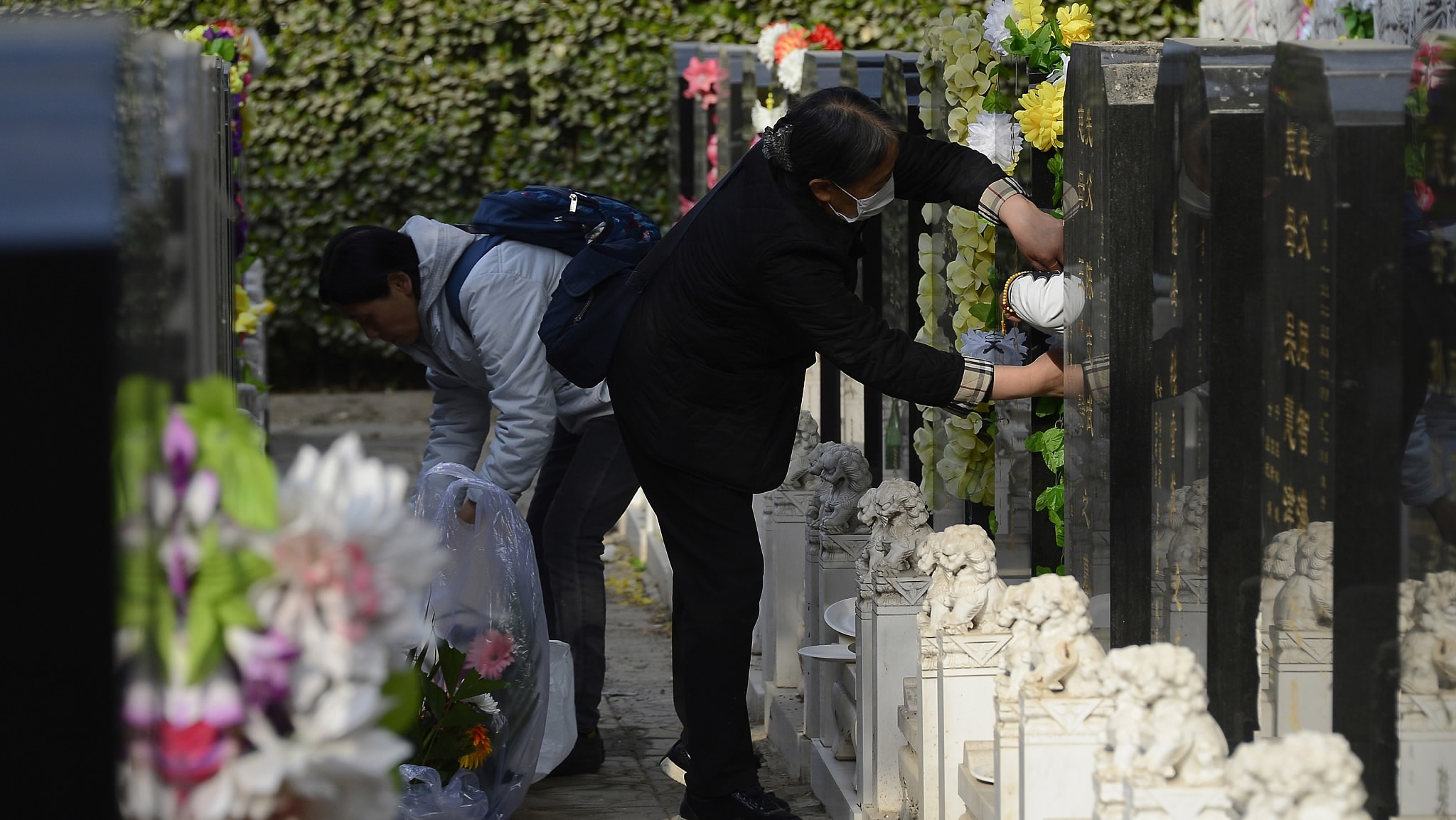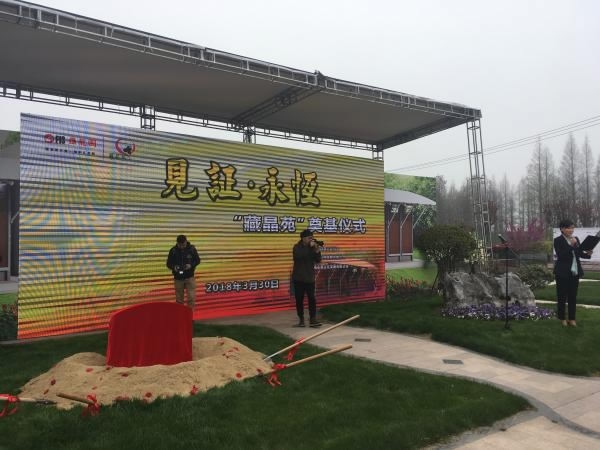
China
12:50, 31-Mar-2018
Crystalized ashes to be preserved for free at Shanghai cemetery
By Li Jing

A cemetery in Shanghai will offer to preserve crystalized ashes for 20 years for free later this year.
Amid sky-rocketing prices of tombs due to a shortage in supply of land, Shanghai became the first city in the country to convert ashes into crystals via high temperature combustion in March 2016.
As hard as a crystal, the compact structure can be colored and made into an accessory like a ring or pendant.

Design picture of Cangjingyuan /Photo from The Paper
Design picture of Cangjingyuan /Photo from The Paper
More than 6,000 families have opted for the alternative so far, with a majority placing the crystals at home or bringing them along.
But others prefer to preserve the objects at graveyards, according to Shanghai Huilongyuan General Manager Ding Guojun, “as they are unable to emotionally accept the sudden loss of their family member, they are tormented by grief when they see the crystals at home.”
“We hope to provide them with a 20 year transition period, helping them to move on as quickly as possible,” Ding explained to Shanghai based media The Paper.

Ground-breaking ceremony of Cangjingyuan, March 30, 2018 /Photo from The Paper
Ground-breaking ceremony of Cangjingyuan, March 30, 2018 /Photo from The Paper
According to the plan, 8,000 crystals would be stored in an area of 60 square meters, saving a lot of space compared to traditional alternatives.
This new idea is changing China’s traditional view of funerals, whereby bodies are usually cremated and buried, as Chinese believe souls only rest in peace if their bodies are covered by soil.
Qingming Festival, also known as Tomb-Sweeping Day, falls on next Thursday (April 5). It is traditionally an important day for Chinese people to visit tombs and pay tributes to their ancestors.

Design picture of the interior of Cangjingyuan /Photo from The Paper
Design picture of the interior of Cangjingyuan /Photo from The Paper
In recent years, eco-friendly ways of mourning are being promoted with the help of technology.
For example, Cangjingyuan developed a cellphone App to allow people to upload photos and videos online to remember their late family members through long-distance ceremonies during peak periods.

SITEMAP
Copyright © 2018 CGTN. Beijing ICP prepared NO.16065310-3
Copyright © 2018 CGTN. Beijing ICP prepared NO.16065310-3